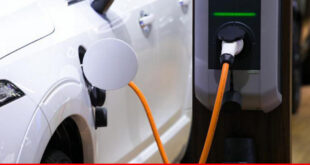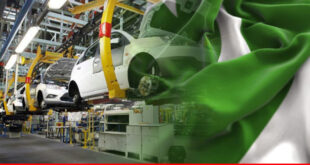Pakistan Automotive Manufacturers’ Association (PAMA) has released its monthly sales data for the month of August registering growth of over 76%MoM, in indication of strong recovery from the adverse impact of advance tax. The prime gainer in the month was Corolla with sale of 3,515 units. Despite the strong recovery the numbers remained under pressure on a cumulative basis, posting a decline of 11.3%YoY in 2MFY15.
While auto industry is witnessing the declining in annual volumes, improvement in margins due to depreciation of Japanese yen is likely to support bottom line. However, analysts expect the benefit of Japanese yen depreciation to be realized in 2QFY15 where the confluence of a weaker yen and rebounding volumes are likely to drive the industry growth. The latest news regarding delay in the Punjab Taxi Scheme may lead to some pressure on Pak Suzuki Motor Company (PSMC) in the near term. However, PSMC being the prime beneficiary of depreciating Japanese yen, which continues to look strong on fundamentals.
Auto sales increased by more than 76%MoM to 12,300 units during August as compared to 6,900 units sold in July. Major contribution in this hefty increase came from INDU where the company sold 4,100 units (up 268%MoM) units followed by 6,500 units sold by PSMC (up 50.8%MoM) and 1,600 units sold by HCAR (up 8.6%MoM). Industry sales breakdown is as follows:
PSMC recorded sales volumes of 6,510 units with sales of all the variants excluding Wagon R (down by 5%MoM) recording substantial growth specifically Ravi (1,114 units), Mehran (2,330 units) and Cultus (1,257 units).
INDU with the launch of new model of Corolla recorded sale of 4,065 units as against sales of 3,515 units in July (up by 34%YoY). The Company also managed to sustain sales volumes of Fortuner (75 units) and Hilux (475 units).
HCAR sold 1,634 units up by 8.6%MoM but down by 23%YoY. The Company sold 587 units of Civic and 1,047 units of City. The YoY decline in sales can be attributed to the launch of the new Corolla that poses major competition.
FY15 started on a bad note for Pakistan’s auto sector sales coming down by more than 11%YoY mainly due to Toyota phasing out its previous Corolla model. Contrary to that marked improvement was witnessed in August. The sales are likely to come down in the aftermath on the recent deluge.
The historical data suggests that floods in Pakistan over the past four years have adversely affected auto sales impairing overall performance of the local manufacturers. Amongst many reasons a hit to farmers’ income can be attributed to the decline in volume as they represent a strong group of customers. Peeping through the history reveals that over the last 4 years local auto sales declined by average 6%QoQ during July-September quarter while average sales during the remaining three quarters rose by 8%.
Sales have been recorded at 9,600 units during 2MFY15, which are on the lower side when compared to average 11,800 units sold in the same period during the past four years. Analysts believe the current floods will bring some level of negativity within the sector that will provide investors an opportunity to build-up fresh positions at dips.
The aggregate sale of car, light commercial vehicles and pickup remained lackluster, in fact posting a decline of 11%YoY to 19,206 units in 2MFY15 as compared to 21,675 units sold during the same period last year. The major drop was seen in the sales of cars segment, as sales step down by massive 13%YoY to 16,466 units in 2MFY15 as compared to 18,880 units in 2MFY14. Similarly, LCV & Pickup segment sales have gone down marginally by 2%YoY to 2,740 units.
The ongoing flood situation in the country is expected to hurt auto sales during September and October due to farmers’ income being hit by floods. However, November onwards a massive recovery would be seen in the sales volume of autos. Apart from this, auto sector is expected to grow massively during FY15 on: 1) introduction of new corolla models 2) ban on import of more than 3-year old used cars 3) growing economic activates and 4) low interest rates environment.
It is to remind the government that assemblers are operating far below the optimum capacity utilization, mainly due to inconsistent government policies. One of the assembling units is virtually closed.
Securities and Exchange Commission of Pakistan (SECP) and State Bank of Pakistan (SBP) should take note of this and appoint administrator immediately to save the shareholders of this company. The lack of knowledge and understanding of stakeholders (particularly the financial institutions) about takeover laws often lead to huge losses to all the stakeholders, particularly minority shareholders and financial institutions. The sponsors of closed down units should be asked to restart production within a stipulated time or face forced liquidation under the joint supervision of SECP and SBP.
The demand of assemblers to reduce age limited of second hand car should also be linked to reducing prices of locally assembled vehicles. Sector experts and analysts are of the consensus that there are ways to reduce cost of locally assembled cars. To improve capacity utilization it should be made mandatory for the overseas investors to export minimum 10 percent of local production in the overseas markets.
Exercising this option will not only improve capacity utilization but also help in increasing sales and earning foreign exchange for the country. This should not pose any problem because all the assemblers claim that they produce vehicles according to international standards.
 PAGE Blog Business Weekly Magazine
PAGE Blog Business Weekly Magazine

